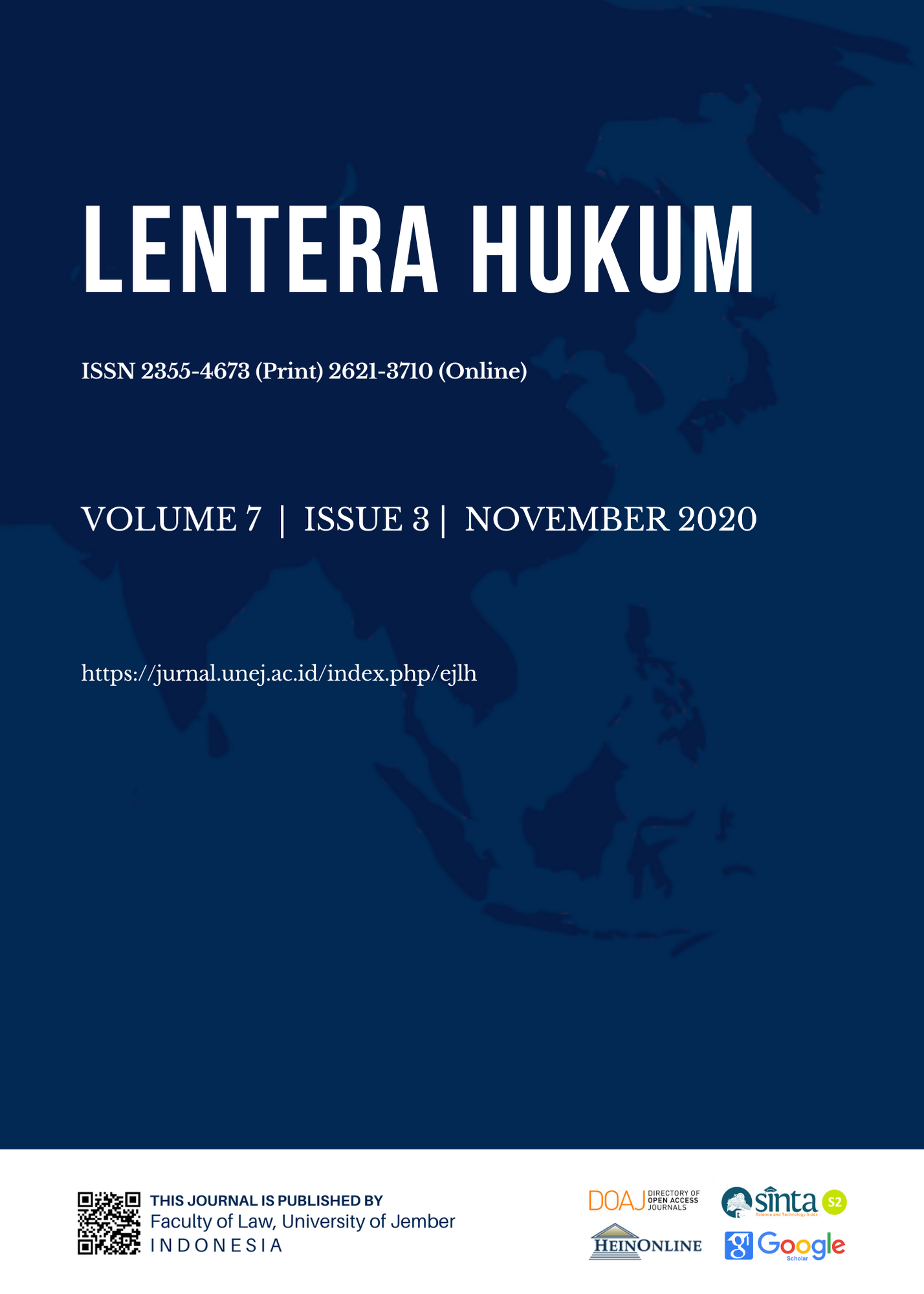Omnibus Law in Indonesia: A Comparison to the United States and Ireland
Abstract
Recently, omnibus law has become a critical discourse in Indonesia, both academically and practically. This discourse emerges from the relatively fast drafting and ratification of the Job Creation Law. This law's formation uses the omnibus law method because it contains many laws' substance into one law. One of Indonesia's fundamental issues is the absence of rules, methods, and techniques for forming the omnibus law. On the other hand, the techniques and methods of forming these omnibus laws have been practiced in various countries to accelerate the legislative process and organize regulations. However, public participation becomes one of the fundamental shortcomings to draft the legislation under omnibus law. This article aims to review and compare the omnibus law concept applied in selected countries, referencing the United States and Ireland as the model. This article also analyzes how to form the ideal omnibus law by learning from the omnibus law application in other countries that have successfully implemented it first. This study finds that omnibus laws in the United States and Ireland contribute to ushering hyper-regulation symptoms that are vulnerable and hamper economic development. The above comparison needs to be adjusted to the Indonesian context to enact the omnibus law.
KEYWORDS: Omnibus Law, Indonesian Law, Comparative Omnibus Law.




